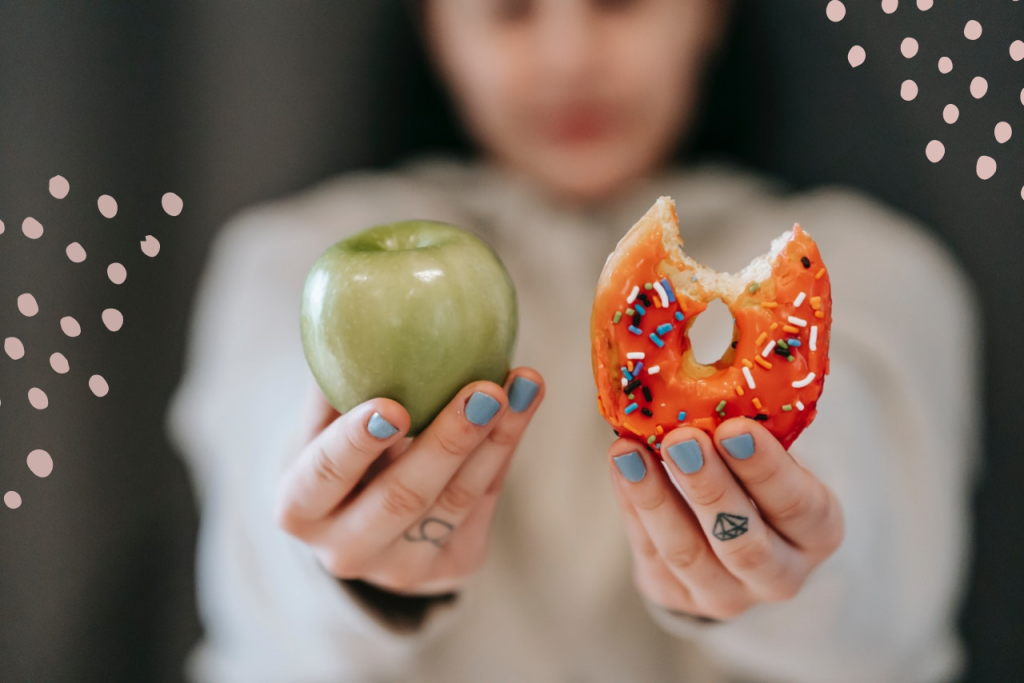You know what they say, that you are what you eat? Well, despite the fact that we haven’t turned into a Neapolitan pizza with extra anchovies overnight, we do believe there’s some truth to that statement.
It’s certainly no secret that our diets play a major role in our overall health and wellbeing. Indeed, in 2020, Public Health England carried out analysis concerning the burden of disease in England, in order to confirm just how crucial a healthy diet was in lowering the risk of preventable diseases such as heart disease and some forms of cancer. Unsurprisingly, it concluded that a healthy diet was vital in ensuring good health.
But how exactly to define a ‘healthy’ or ‘balanced’ diet? Well, aside from the obvious ‘five a day’ platitudes and a concerted effort to cut out certain detrimental elements, sometimes a healthy diet is one that’s regularly being tweaked and improved in line with changing tastes, scientific advice and altered personal health circumstances.
With that in mind, here are 5 food swaps that make a real difference to your health.
Homemade Not Processed
That Public Health England report we mentioned a few moments ago found that in England, although there were some encouraging signs in the nation’s diets, eating excessive sugar, salt and saturated fats were still all a cause for concern.
The NHS concur, stating that ‘’Most people in the UK eat and drink too many calories, too much saturated fat, sugar and salt, and not enough fruit, vegetables, oily fish or fibre.’’
The easiest way to avoid excessive amounts of salt, sugar and saturated fats is to cook all (within reason) of your meals from scratch, using fresh produce. In doing so, you’ll know exactly what’s going into your food, with every gram of salt and sugar accounted for.
Ideally, it’s generally healthier if you’re cooking with organic foods, too. Whilst organic food isn’t more nutritionally beneficial per se, you’ll be avoiding consumption of pesticides, antibiotics and hormones.
What’s more, if you’re concerned about the environmental impact of your diet, then organic is without doubt a better choice, as organic farming promotes biodiversity and the natural work of predators in maintaining an ecological balance.

Healthy Snacks Are In
What’s that sound? Is it your fridge calling you? Just for a peer inside, of course, to check everything’s still working in there. Yep, still cold.
Inadvertently, and particularly as the majority of work has moved into our homes, these fridge inspections end up turning into snacking. And that’s fine if the snacks are healthy, nourishing and sustaining, but let’s face it; they so often aren’t.
If you find you’re turning to the hard stuff more and more frequently, to help cope with stress or to distract you from the tedious monotony of life, then perhaps it’s time for a rethink?
Swapping out the processed, sugary snacks for healthier alternatives is a really simple way you can make a big difference to your diet. If you enjoy a sweet pick-me-up, then swap out the chocolate for some delicious slices of mango or chunks of pineapple. If you crave a little fat and salt in the afternoon to get you through until dinner, why not enjoy a just-made guacamole with fresh corn chips, instead of a pack of ready salted? Though it might sound like a minor adjustment, incrementally, the health benefits of making it are huge.
Alternatively, a healthy snack box subscription, delivered fortnightly or even monthly, is a wonderfully simple way to regulate the amount of snacks you have in the house, the fact that they’re healthy more than just an added bonus.
Read: 7 of the best healthy office snacks
‘Bad’ For ‘Good’ Fats
To sustain a healthy diet, it’s important to know something about the nutritional values of food. That said, there’s so much confusion over nutrition, and time and time again the lines are redrawn about what may or not be healthy.
Intelligence regarding fat, particularly, has shapeshifted, with science now recommending doing away with a daily ceiling being put on fat consumption, and instead focusing on replacing ‘bad’ fats with ‘good’ ones – or saturated with unsaturated.
Simple swaps can be made regarding fat which can help you manage your weight. These include:
- Swap whole milk for skimmed
- Prioritise low fat cottage cheese instead of full fat cheese
- Swap butter for low fat spreads or extra virgin olive oil
- Switch the sour cream for low fat creme fraiche
- Use rapeseed oil or extra virgin olive oil for frying, and use a spritzer to control the amount you use
Generally speaking, doctors and nutritionists regard monounsaturated and polyunsaturated fats as being considerably more healthy than the saturated kinds. You’ll find monounsaturated fats in oily fish, walnuts, and some seeds, while polyunsaturated fats are found in nuts and avocados, especially.
It should be said that defining a healthy diet can be complex, as people’s needs vary based on factors like age, activity level, and medical history. Board-certified registered dietitians are trained to assess these factors and provide evidence-based recommendations tailored to each person’s lifestyle and health objectives.

Three Larger Meals For Six Smaller Ones
Those three large meals that have defined the ebb and flow of your day since, well, forever? Some nutritionists believe we’ve been approaching mealtimes wrong this whole time.
Instead, some people may respond more favourably (in terms of sustained energy levels, primarily) to a prolonged form of grazing, with several smaller meals spaced out across the day. The jury is still out on this one, but it’s an interesting thing to consider.
Soft Drinks For Water & Tea
Carbonated beverages like sodas and artificial juices might feel refreshing, but they do your body more harm than good. Replace them with water or tea. It may not sound as exciting but apart, but water is essential for protecting your organs, carrying oxygen and nutrients to cells, lubricating joints, flushing out waste products, and allowing you to assimilate minerals, to name but a few of its many, many uses.
Should you need an exciting drink, then herbal tea is ideal. A popular household choice across the world for those looking to enjoy the potential benefits of various essential oils on mood and mindset, some of the best herbal teas for stress relief include peppermint, chamomile, lavender, kava and valerian, though it should be noted that scientific opinion is divided on just how effective these actually are in aiding relaxation. Tea is also a great source of antioxidants, improving metabolism and helping to balance blood sugar levels.
And with that, we’re off to cook dinner…and a healthy one we hope it will be!





